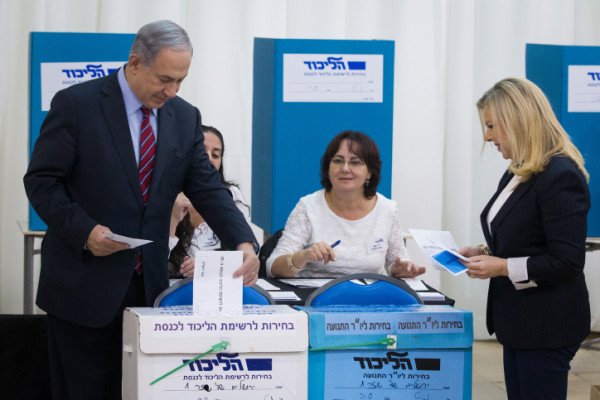Israel elections 2015: Close race between Benjamin Netanyahu’s party and Zionist Union
Nearly six million Israelis are expected to polls to vote for a new parliament on March 17.
The new elections are expected to be a close contest between PM Benjamin Netanyahu’s party and a centre-left alliance.
The centre-left Zionist Union promises to repair relations with Palestinians and the international community.
Benjamin Netanyahu, whose party has trailed in opinion polls, vowed on March 16 not to allow the creation of a Palestinian state if he wins a fourth term.
The economy and living standards have emerged as key issues.
Polls opened at 07:00 and are due to close at 22:00 local time.
Results could be declared soon afterwards, but a lengthy period of negotiations over the formation of the next coalition government may follow.
No party has ever won an outright majority under Israel’s proportional representation voting system, and neither side is expected to get more than a quarter of the votes in Tuesday’s election.
Votes are cast for a party, rather than individual candidates. There are 120 seats up for grabs though electoral system means no single party will achieve a majority.
Blocs of parties must command at least 61 seats to form a government and the president has seven days in which to appoint a member of parliament with best chance of forming a government. The candidate has initial 28 days to put workable coalition together.
Opinion polls published before the weekend suggested that the centre-left Zionist Union is likely to win the most seats.
It might still be possible for Benjamin Netanyahu to form a coalition government even if his Likud party fails to top the poll.
As Benjamin Netanyahu cast his vote on Tuesday, he ruled out forming a coalition with the Zionist Union: “There will not be a unity government with Labor. I will form a nationalist (rightwing) government.”
Zionist Union party co-leader Yitzhak Herzog said his rival represented the “path of despair and disappointment”.
“Whoever wants change, hope, and really a better future for Israel, will vote the Zionist Camp,” he said.
International issues, from Israel’s relationship with the United States to concerns over Iran’s nuclear program, have been one focus of the campaign.
Many of the candidates have concentrated on Israel’s socio-economic problems, including the high cost of living and slow economic growth.
The future of the city of Jerusalem has also been a central election issue.
Benjamin Netanyahu has consistently accused his centre-left challengers of being willing to relinquish Israel’s claim to Jerusalem as its indivisible capital in peace talks with the Palestinians.
On March 16, Benjamin Netanyahu spoke at the Har Homa Jewish settlement in East Jerusalem and said he was the only person who could ensure the city’s security.
He said no Palestinian state would be formed were he to remain prime minister.
Palestinians seek East Jerusalem – occupied by Israel since the 1967 Middle East war – as the capital of a future Palestinian state.
Yitzhak Herzog has accused Benjamin Netanyahu of “panicking”.
Visiting the Western Wall, one of the holiest sites in Judaism, on Sunday, Yitzhak Herzog pledged to “safeguard Jerusalem and its residents in actions, not just words, more than any other leader”.
[youtube vlOEXMVSwRk 650]

